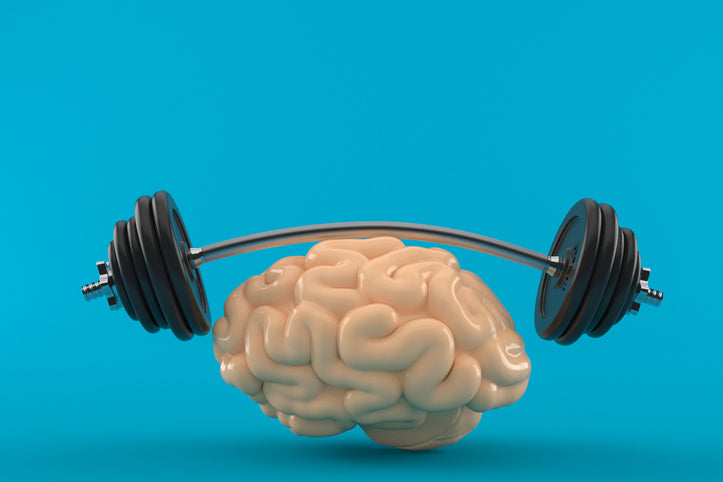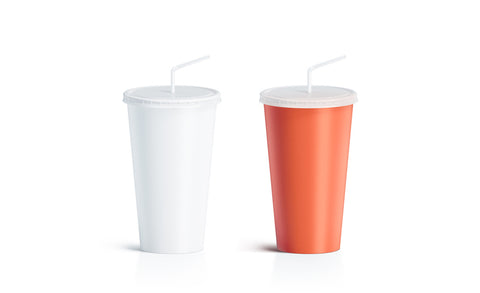
Our minds are powerful. One of the best and most easily accessible examples to illustrate its power is the placebo effect. The belief alone that a sugar pill is medicine can be enough to get rid of headaches, ease depression and do many other amazing things.
An earlier article, (which is found here: Can Imagining Your Muscles Grow, Make It Happen?) discussed the power of the mind. It looked at what imagination and visualisation can do for improving lifts and growing muscle. While there is limited research on the topic, what is available proves very interesting.
How else can beliefs affect your gains? There aren't many studies on this topic, but the few that exist show some interesting results alluding to the power beliefs can have on exercise performance and diet.
Believing You Are On Steroids Can Make You Stronger? Surely not
Steroids make people bigger and stronger; I am sure not many people dispute that. All you have to do is look at the athletes in any untested federation vs tested federations to see the differences steroids can make in performance and gaining muscle.
Steroids work because they provide our bodies with substances, such as synthetic hormones, that make us bigger and stronger (like testosterone, for example). But can they work just because we believe that they work?
Steroids - The Placebo Effect
In one of and perhaps the most interesting studies, a group of 15 trained athletes were told they could have access to ''legal steroids''.
Researchers told the athletes in the study that whoever made the best strength gains in the first 7 weeks, would be given legal steroids. At the end of the 7 weeks, athletes put a combined total 10kg combined onto their lifts (they were doing bench press, military press, seated press, and squat). Then an interesting thing happened.
 The researchers told 6 of the athletes that they had earned some ''legal steroids''. They weren't steroids though; they were just placebos (probably sugar pills). After 4 weeks of taking these sugar pills that they thought were steroids, the athletes put a whopping combined total of around 45kg on their lifts.
The researchers told 6 of the athletes that they had earned some ''legal steroids''. They weren't steroids though; they were just placebos (probably sugar pills). After 4 weeks of taking these sugar pills that they thought were steroids, the athletes put a whopping combined total of around 45kg on their lifts.
Think about that. Putting a combined total of 45kg on your lifts in just 4 weeks, after only putting around 10kg combined on their lifts in 7 weeks. All because they thought they were getting steroids. The above raises some interesting questions on the power beliefs can have on exercise performance.
Beliefs And Nutrition - Mind Over Milkshake

Not surprisingly, our beliefs can affect not only our performance in the gym but the food we eat and even how hungry feel. When you eat food that contains a lot of calories, you not only feel a little guilty but less hungry afterwards. You'd presume this is because the food contains more calories and thus, the more calories you eat, the less hungry you feel later. Makes sense. Right?
What if you thought something contained a lot of calories, but it didn't. Surely that wouldn't change anything?
One study, with the fabulous title Mind Over Milkshake, looked at how our beliefs about how many calories foods contain can change how full we feel afterwards. It also measured hormone responses.
The researches had all participants drink a milkshake containing 380 calories. Then they put two different labels on the milkshakes— one saying that it contained 620 calories and marketed it as a delicious and naughty treat.
The other label said it contained a mere 140 calories and marketed it as a healthy snack.
Afterwards, the group that had what they thought was the 620 calorie shake reported feeling less hungry and surprisingly had lower levels of a hunger hormone called ghrelin. While the group that had what they thought was the 140 calorie shake reported being hungrier and had higher levels of ghrelin.
Even though groups had the same amount of calories; their beliefs changed not only their subjective feeling of hunger but their hormones themselves. Fascinating.
Good Genes, Bad Genes - Beliefs And Genes
Gene testing is all the rage these days. There are a bunch of consumer genetic kits available, where simple saliva swabs can be sent off, and breakdown of your genetic makeup is spat out. What if you woke up one day and found out that you had a gene that made you good at aerobic exercise (running, swimming, cycling, etc.)? Would you suddenly be better at aerobic exercise?
Intuitively, you'd think that beliefs wouldn't matter in this situation and that the genes themselves would determine whether or not someone is good at aerobic exercise. An interesting study painted a different picture.

The participants in the study were tested on aerobic exercise performance and were then tested for a gene variation that can either have positive or negative effects on performance. Then the researchers told 50% of the participants that they had the good version (that is beneficial for aerobic performance). They told the other 50% they had the bad version of the gene (that has negative impacts on aerobic exercise performance). After, participants had their aerobic exercise performance re-tested.
The interesting part about this study is some people were told they had the bad genes, even though they had the good gene and vice versa (they were lied to, basically).
In the re-test, people who were told they had the bad gene, even though they had the good gene started performing worse. People who had the bad gene but were told they had the good gene started performing better.
This demonstrates the remarkable power of beliefs to impact our physical performance. If you believe you have a version of a gene that makes you good at something, you suddenly become better, regardless of whether the gene is there or not.
Wrapping Up
These three examples demonstrate how powerful beliefs are in all aspects of training life, from aerobic performance, diet to strength. It is unlikely that you will ever find yourself in a situation where someone is lying to you about how many calories and giving you pretend steroids. So what are the practical takeaways?
Don't let your beliefs be the thing that holds you back. If you believe you are bad at certain exercises or have been dealt a bad hand genetically then that can have a real-world impact on your performance. If you believe some foods don't fill you up and others do, then they probably will. Be careful what you believe.
-Gym Meals
